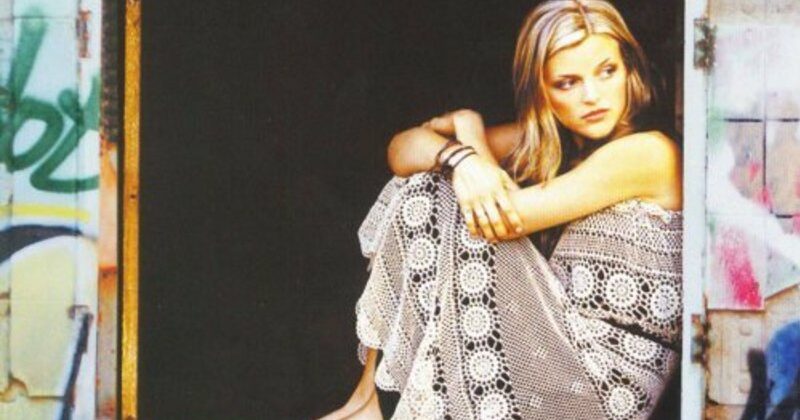In this column, we deliver hot (and cold) takes on pop culture, judging whether a subject is overrated or underrated.
Save articles for later
Add articles to your saved list and come back to them any time.
It’s a universal experience among anyone who has entered the gladiatorial labyrinth that is the dating game, though each journey looks different. An awkward conversation, a personality clash, a fizzle rather than a bang. They keep talking over you, they’re mean to the wait staff, they’re a real estate agent. Maybe it’s been a night, or a month, or six. Regardless of the path, the smug minotaur at the centre delivers the same message: that was a complete and utter waste of time.
One Australian song has managed to capture the myriad of emotions that accompany the most modern of human experiences and make it catchy as hell at the same time. It’s Lovesong by Amiel – the greatest Australian pop song of the 21st century.
In the early 2000s, female-led alt-folk was having a real moment. In 2002, Kasey Chambers swept the ARIAs with Not Pretty Enough and The Waifs finished in the top three of an extremely rock-heavy Hottest 100 with London Still. In 2004, Missy Higgins released her massive hit Scar, which did both.
And sandwiched in between, Sydney singer-songwriter Amiel Daemion released Lovesong. The track wasn’t exactly ignored, but it was denied the kind of critical and commercial success of its contemporaries. It debuted at number 13 on the ARIA singles chart and rose briefly into the top 10, but faded from the chart entirely after just 26 weeks. Amiel was nominated for five ARIA awards that year, and somehow lost every single one to Delta Goodrem.
Twenty years on, Lovesong is in dire need of a reappraisal. It’s not simply criminally underrated, it’s perfect.
A love letter to Amiel’s Lovesong
It’s better than Untouched by The Veronicas. Better than Chandelier by Sia. Yes, even better than Kylie’s Can’t Get You Out Of My Head. Catchier than Not Pretty Enough, more daring than Scar. Less manicured than My My My by Troye Sivan, less xylophone than Somebody I Used To Know by Gotye and Kimbra.
Lovesong has everything you could want or need in a pop song – it was simply born in the wrong era. Too cynical for the true believers, too earnest for the scorned, too many f-bombs for a white woman in the early 2000s. It’s a track that feels so fresh and original today, a decidedly modern earworm brimming with cutting lyrics and bubbling vulnerability. Amiel’s voice is lilting and captivating, and the chorus is an absolute banger. Without squinting, you can trace the song’s DNA in some of the best Aussie alt-pop tracks of the past few years: Killing My Time by G Flip, Regular Touch by Vera Blue, Josh by Peach PRC.
In the current era of hyper-connectivity, social media and dating apps, Lovesong would be one of the biggest songs in the world. It feels destined to be the next 2000s nostalgia trip to be given a second life on TikTok and become a global sensation. A proto-Taylor Swift, now connecting with a generation of young women more self-aware and empowered than any before it.
Amiel’s lyrics are not the sophomoric musings of the lost and lovelorn. Indeed, the opening lines are an existential questioning of love, relationships and human desire. “Do you know what it is you’re looking for?” she asks. Hell of a question for millennials, let alone for a generation increasingly unbound by traditional concepts of sexuality, gender and monogamy, where even distance is no longer the barrier it was.
The dating game has changed. Lovesong worked against the backdrop of You’ve Got Mail and Bridget Jones’ Diary, but it hits even harder in the world of Heartstopper and Riverdale. The world of Tinder and Bumble, of swiping and situationships and trauma bonding. Where relationships bloom in so many shapes and colours. Where rejection can come with the swipe of a finger, but profound bonds can develop with almost the same level of immediacy. Where the labyrinth has infinitely more paths, but the journey is all the more free for the chaos.
Ultimately, the message of Lovesong is exactly that: Love is messy. Relationships are complicated. Dating is a stupid game with made-up rules. But she’ll keep looking for a genuine connection anyway. And isn’t that the most universal feeling of all?
Tom W Clarke’s Shoulda Been Higher: A Celebration of 30 Years of Triple J’s Hottest 100 will be published on October 1.
To read more from Spectrum, visit our page here.
Find out the next TV, streaming series and movies to add to your must-sees. Get The Watchlist delivered every Thursday.
Most Viewed in Culture
From our partners
Source: Read Full Article

